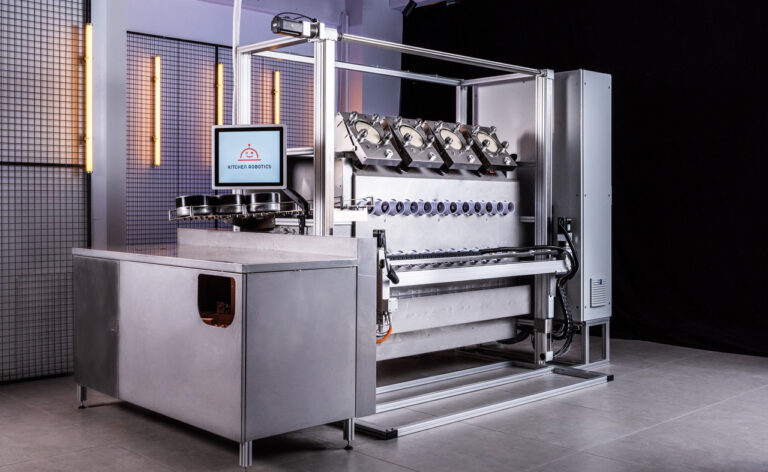Riley Kaminer
When Kitchen Robotics co-founder Ofer Zinger talked about his journey into the world of technology, it was clear that his path was anything but linear. From his early days in the tech industry to his deep dives into philosophy, Zinger's diverse background laid the foundation for an innovative venture that is currently shaking up the food industry.
Zinger founded his first company in 2008 after noticing inefficiencies in online advertising. “Online advertising was all done manually, and I realized there might be an opportunity for automation,” he said. Refresh Miami.

A few years later, Zinger used his talent for identifying automation opportunities to co-found Dynamic Yield, a company that personalized website experiences and eventually sold to McDonald's for $300 million.
But for Zinger, this was just the beginning. About five years ago, he teamed up with the former CEO of Israel's iRobot to explore a new field: kitchen automation. “We decided to join forces and ended up coming up with this kitchen automation solution that was all about robotics and customization,” Zinger explains. And thus Kitchen Robotics was born, and its flagship product, Beastro, was poised to transform the fast-food industry.
Beastro may look like your average robot chef, but it's not. It's an advanced combination of hardware and software designed to tackle some of the food industry's biggest challenges. From reducing labor costs to minimizing food waste, Beastro aims to deliver a more efficient, personalized dining experience. “Imagine being able to design a dish to suit your tastes and dietary needs, all managed by a robot that never forgets your order,” says Zinger.
The technology behind Beastro incorporates multiple layers of AI. Predictive analytics helps forecast demand so ingredients are ordered accurately and waste is minimized, while the system's generative AI can instantly create recipes based on available ingredients and tailored to individual tastes. “It's like having grandma in the kitchen, but with the precision and consistency that only a robot can provide,” Zinger declared.
This innovative approach is already creating a buzz in Miami, where Kitchen Robotics has its US base. The company's technology is currently being tested at Florida International University, serving a diverse community of 50,000 students and staff. “We believe in Miami's tech scene and food culture,” said Zinger, highlighting the importance of the city to the company's business.

One of Bestro's big benefits is that it addresses a pressing issue in the hospitality industry: labor shortages. Florida has been particularly hard hit, with just 53 workers available for every 100 job openings and annual turnover at quick-service restaurants reaching a staggering 144%. “We're not taking jobs, we're filling a gap that businesses are struggling to manage,” Zinger emphasized.
Kitchen Robotics' business model is designed for flexibility and scalability. With a leasing model starting at about $4,000 per month, businesses of all sizes can deploy the technology. “Whether it's a small chain or a large enterprise, our goal is to make serving high-quality, personalized meals easy and efficient,” says Zinger.
Looking ahead, Zinger is excited to expand Kitchen Robotics' solution. The company has already raised about $10 million from notable investors, including Ziv Aviram, the entrepreneur who sold Mobileye to Intel for $15.3 billion. “Now we're ready to expand and get our technology in more places,” Zinger said, expressing confidence in the company's ability to deploy the units quickly and efficiently.
“The next year or two will be about seeing how our efforts to scale pay off and how our vision of automated, personalized dining becomes a widespread reality,” he added.
Next time you visit FIU or any other location with a Beastro, remember you're experiencing a glimpse of the future — a #MiamiTech feast, one delicious meal at a time.

MORE FROM REFRESH MIAMI:


